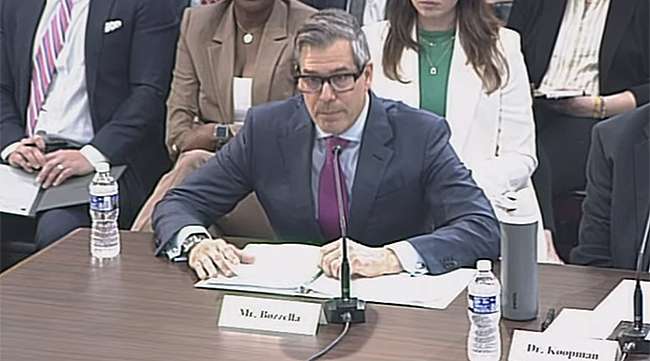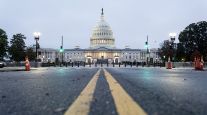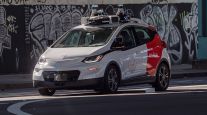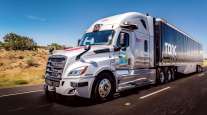Senior Reporter
House Transportation Leaders Tout Self-Driving Technology

[Stay on top of transportation news: Get TTNews in your inbox.]
Ensuring nationwide standards for self-driving technology would assist with safety and efficiency, the leadership of a House panel said recently.
Ahead of consideration of a bill associated with self-driving policy, Energy and Commerce Committee Chairwoman Cathy McMorris Rodgers (R-Wash.) emphasized the technology’s myriad benefits.
“Self-driving vehicles have the potential to break down transportation barriers, unleash more opportunities, more freedom and more independence,” McMorris Rodgers said in a hearing on July 26. “It will mean a safe, reliable way to get to work, go to the doctor, get an education and so much more.”
She continued, “They also have the potential to reduce death and injury on our roads, most of which result from human error and impaired driving, help ensure our transportation future isn’t reliant on supply chains from our adversaries, and prevent China from controlling the [artificial intelligence] and machine-learning technologies and insights gained from this technology.”
The committee aims to proceed with legislation anchored on self-driving policies. The approval of a national communication framework would pave the way for autonomous vehicle operations, legislative proponents argue.
Rep. Gus Bilirakis (R-Fla.), chairman of the Innovation, Data, and Commerce Subcommittee, agreed with the chairwoman’s viewpoint and focused on potential safety benefits. He pointed to recent federal data that estimated nearly 43,000 individuals died in vehicle crashes in 2022.
Bilirakis said, “This technology can help roll back these sad fatality statistics, solving the issues of human limitation, impairments and inattentiveness. It’s clear the status quo is unacceptable.
“[Autonomous vehicles] hold so much promise for everyone in this country, so let’s make sure this promise ends up a reality for everyone, and not just a proportion of the U.S. population.”

How effective have third-party services proved to be for fleets? Let's find out with Michael Precia of Fleetworthy Solutions and Dan Rutherford with Summit Virtual CFO by Anders. Tune in above or by going to RoadSigns.ttnews.com.
Rep. Bob Latta (R-Ohio) has championed AV policy over the years. The panel highlighted Latta’s efforts, referred to as a “discussion draft,” in background materials for the committee: “The discussion draft establishes a preemptive national standard regarding the design, construction, and performance of highly automated vehicles, automated driving systems or components of automated driving systems,” it read.
“The draft authorizes a Department of Transportation rulemaking, which would require manufacturers of [autonomous vehicles], and other covered entities, to submit safety assessments that include a clear description of contents to demonstrate the vehicles are designed to maintain safety, function as intended, contain fail-safe features, and include subject areas identified in Automated Driving Systems (ADS): A vision for Safety 2.0 as well as accessibility, including for nonvisual accessibility.”
“We want to make sure that we get this done; we [have to] get it done right because, again, when we look around the world, other countries are out there right now testing,” Latta said earlier this year. He was among a group of bipartisan lawmakers who launched the Congressional Autonomous Vehicle Caucus. Their objective is establishing a federal framework for assisting agencies and industries with the deployment of autonomous vehicles.
Want more news? Listen to today's daily briefing above or go here for more info
Industry proponents of the technology are calling on Congress to facilitate AVs' access to the marketplace. Addressing members of the Energy and Commerce panel on July 26, John Bozzella, president and CEO for the Alliance for Automotive Innovation, said, “AV technologies are no longer a concept — some utopian ideal not based in reality. The technology is here and ready to scale. The question we must all ask ourselves is whether the U.S. will continue to be a leader in defining the future of personal mobility or allow it to be defined by others.”
Bozzella added, “This Congress has a tremendous opportunity to advance highway safety, expand mobility and solidify the U.S. as the leader in automotive safety and mobility technology.”




